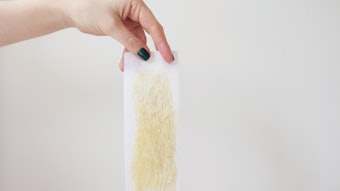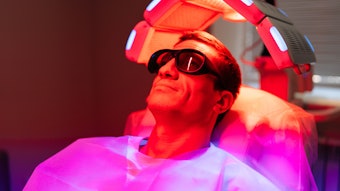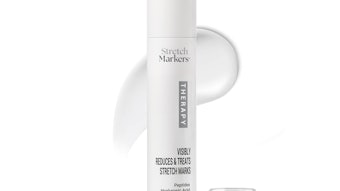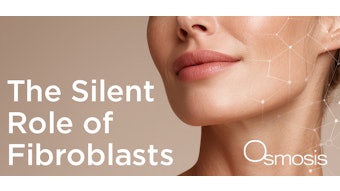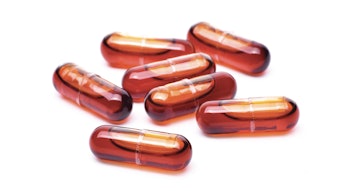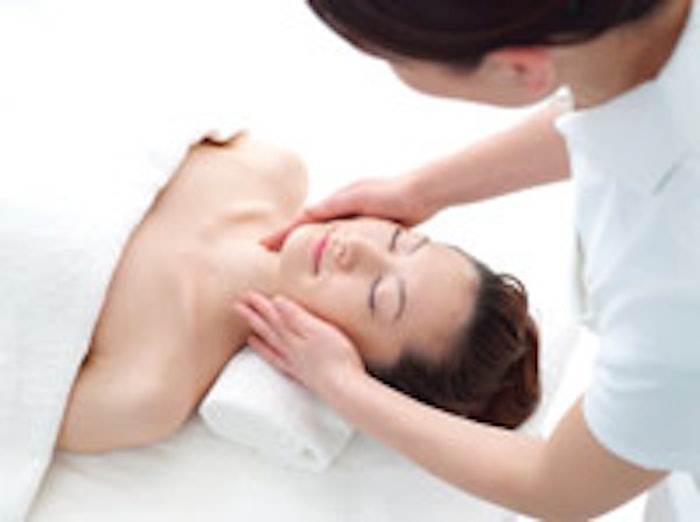
Editor’s note: Author and personal esthetician to First Lady Michelle Obama, JoElle Lee, will be speaking during the Advanced Education Conference Program at Face & Body® Midwest in Chicago on March 22, 2014. Register today to attend at www.FaceandBody.com/midwest/register.
As the demand for speedy results with skin care treatments continues to grow, skin care professionals may find themselves consulting with their clients about much more than treatment and product regimens. They will soon discover that, in order to achieve the most effective results, a partnership will have to be formed with clients in order to approach unwanted skin conditions from the inside out. Skin problems are usually related to a dysfunction or imbalance occurring deep within the body, and it is at this level the skin also has to be treated.
Unfortunately, this is often overlooked by most skin care professionals, and these skin problems are mainly addressed with only invasive treatments and harsh products. The way a client’s skin looks can tell you a lot about the person’s overall health. This is why it is so important to partner with your client to find a long-term solution that treats the root cause of the skin problem. No matter the client’s age, healthy, clear skin can be achieved—and the aging process can be delayed—with a holistic approach.
There are multiple skin conditions commonly treated by skin care professionals, but because acne and aging are the two most common, the root causes and holistic recommendations for these conditions will be examined in this article.
Root causes: adult active acne
- Candida/yeast overgrowth
- Emotional stress
- Food sensitivities
- Genetics
- Hormonal fluctuation or imbalance
- Nutritional deficiencies
- Poor diet
- Poor digestion or a toxic body system
Hormones and inflammation. Although acne is known for being a common problem during adolescent years, there has been an increasing frequency of acne cases in adults. Hormones play a significant role in adult active acne and can fluctuate at times other than adolescence—most notably during pregnancy, around the time of menses or menopause, and during periods of emotional stress. Oral contraceptives can also affect hormone production. All of these factors can lead to clogged and infected pores, resulting in increased bacteria and yeast overgrowth on the skin, often causing skin inflammation. Superficial inflammation results in pustule formation and skin redness. Inflammation that occurs deeper in the skin can result in the formation of nodules, cysts and possibly scars.
Poor nutrition. This leads to the second biggest contributor to acne: poor nutrition. Food allergies or food sensitivities can worsen or cause acne. Fat, sugar and processed foods accelerate skin inflammation that leads to problem skin. They also contribute to constipation, and the body responds by trying to release the toxins and poisons through a different avenue. The skin, along with the lungs, bowel, liver and kidneys, are all organs that assist the body in getting rid of waste products. When the development of a skin condition or even unhealthy-looking skin occurs, it may be due to one or more organs of elimination being overloaded or not functioning properly.
Diet. Your client’s diet is where you should start first when addressing skin problems. In general, acne-sufferers should follow a simple diet of basic, unprocessed foods. A diet full of excessive starches, fried, fatty foods and other junk foods has been shown to aggravate acne. Chronic constipation is also a contributing factor.
Dark green or orange vegetables are especially helpful due to their beta carotene content, which helps maintain and repair the skin. Eating them raw or lightly cooked helps to retain their nutrients and fiber. Clients who suffer with acne tend to have fewer breakouts when they follow a diet that is centered on whole foods, such as fruits and vegetables. Suggest limiting fruit juices and instead opting for vegetable juices. Juicing helps to make things easy when trying to get plenty of healthy fruits and vegetables into the body. A good vegetable juice combines carrots, beets, cucumber and celery.
Other foods that benefit clients with acne are those that contain omega-3 fatty acids. These special fatty acids can be found in many different foods, such as nuts and seeds—almonds, walnuts and pumpkin seeds—and fresh, cold-water fish—salmon, mackerel, herring and sardines. Flaxseed oil and cod liver oil also have essential omega-3 fatty acids and can be incorporated into the diet.
Recommend that clients avoid fried foods and solid fats, such as margarine, lard and vegetable shortening. Saturated and hydrogenated fats are difficult to digest, and they can worsen acne. Alcohol, sugar, chocolate and soda should be consumed in moderation and also suggest cutting back on meat products. Excessive amount of these foods can all create an acidic environment in the body that will encourage acne. For clients who are avid coffee-drinkers, try recommending herbal teas instead and drinking a glass of purified water every two waking hours to prevent dehydration.
Chronic antibiotic use. Skin care professionals are now treating clients who are on a plethora of prescribed medicines that, over time, strip and over-dry the skin and only offer temporary relief. In addition, overgrowth of candida, a fungal group of yeasts, can be an underlying cause of acne, most commonly due to chronic antibiotic use, which can destroy friendly bacteria. These days, many clients are using long-term antibiotics for the treatment of acne, which not only sets them up for more acne problems, but also can potentially lead to digestive problems, as well. If your clients must use topical or oral antibiotics for acne, recommend they eat some live, unsweetened yogurt every day to replace the friendly bacteria in the digestive tract.
If you have acne clients, caution them about the use of long-term prescription antibiotics and see if you can partner with their physicians to help slowly wean them off the prescriptions. Most prescription drugs for acne are too harsh, and can cause dryness, redness, scaling and sun sensitivity. Antibiotics can disrupt the natural balance of intestinal flora, and may cause yeast infections and diarrhea.
Stress. Lastly, the effects of stress can throw the body into a state of imbalance. Stress can affect the skin by altering hormone levels, and disrupting digestion and detoxification. Clients with acne usually feel additional stress because they generally feel self-conscious about their appearance. Recommend techniques for your clients to reduce stress, and help with skin health and appearance. Exercise, prayer, meditation, reading, yoga and many other techniques can be used to reduce to effects of stress.
Root causes: aging
- Elevated blood sugar levels
- Free radical damage
- Genetics
- Hormonal fluctuation or imbalance
- Nutritional deficiencies
- Poor diet/lack of exercise
- Poor digestion and detoxification
- Stress and isolation/lack of exercise
Aging is a natural process and most associate aging with how they look, as well as with age-related disorders, such as heart disease, diabetes, cancer, arthritis and digestive problems. Most of these age-related conditions are caused by lifestyle factors, such as diet, exposure to environmental toxins, lack of exercise, genetics and stress. These days, more and more clients are demanding treatments and products to help prevent premature aging, and it’s becoming increasingly difficult to keep inflammation and free radical exposure down to a healthy level. Other factors that accelerate the aging process include stress, lack of exercise, hormonal imbalance and high blood sugar levels. Prolonged periods of stress can lead to chronic diseases, and lack of exercise can increase the risk of heart disease, diabetes and osteoporosis. Hormone balance is also a major contributor to healthy aging.
Hormones. The two primary hormones that affect aging are cortisol and dehydroepiandrosterone (DHEA), and a deficiency or abnormal elevation of these hormones can accelerate aging and immune system breakdown. Most recently, however, researchers are finding that growth hormones may play a major role in slowing down the aging process.
Inflammation. Inflammation is a normal, short-term natural immune response that involves the release of immune cells by the body to counteract infection and heal trauma. At that point, the response is supposed to be turned off. However, if it stays activated, immune cells will remain in circulation and can damage healthy cell functions, such as natural skin rejuvenation and turnover. Eating too much sugar or high-glycemic food ultimately leads to a process in which sugar molecules in the blood bond to proteins and DNA. Over time, this process affects collagen proteins, changing their shape, flexibility, elasticity and function. The result is premature aging and additional inflammation. To significantly improve the tone and texture of the skin, inflammation would have to be reduced. This can be achieved by neutralizing free radicals both inside and out, and boosting immune function through good nutrition, supplementation, hormonal balance and detoxification.
Many aspects of modern living—including poor diet, and exposure to pollution, smoke and environmental contaminants—put the skin in contact with free radicals more than ever before. However, the body is designed to neutralize free radicals naturally with the use of antioxidants. Antioxidants are found in many fruits and vegetables, and in some herbs. A combination of healthful eating with antioxidant supplements can prevent excessive damage from free radicals.
Diet. As clients age, they may experience more difficulty absorbing nutrients and have a challenge incorporating enough fiber into their diets. To compensate, recommend that they eat plenty of whole grains and leafy greens and, if possible, add wheat germ to meals. Oats, flaxseeds and raw vegetables can prevent constipation and will reduce toxins in the digestive tract. Deeply colored fruits and vegetables are packed with antioxidants that neutralize free radicals. Vitamin C helps fight free radical damage, reduce cancer risk and strengthen the immune system. Good dietary sources of vitamin C include broccoli, citrus fruits, red peppers, asparagus and avocados.
To help prevent dehydration, recommend clients drink a glass of purified water every two waking hours; this will also help with chronic constipation. A glass of red grape juice or an occasional glass of red wine also has antioxidant properties to keep free radicals at bay.
Foods high in free radicals are red meat and processed foods, as well as foods with additives and preservatives. They can also clog up the digestive tract and inhibit proper functioning. Recommend that clients avoid or limit these foods.
A natural solution
Skin care professionals should incorporate dietary and lifestyle questions into their skin analysis and consultations. This will give more insight to the client’s overall health and well-being, and allow the professional to recommend a holistic or natural approach to the current condition of the skin. This will also help you to emphasize the importance of dietary changes, stress-reduction and detoxification, along with effective skin care treatments and products. For clients who are experiencing acne or premature aging, you should be able to refer them to a natural health practitioner or naturopath for natural hormone-balancing, and testing for nutritional deficiencies and food allergies. There are an array of herbal remedies and supplements that are designed to improve problem skin and reverse signs of aging. However, they are best recommended by your client’s physician or a natural health practitioner to ensure your clients are prescribed the correct dosage based on their medical history and testing. Homeopathy, acupressure, reflexology, hydrotherapy and bodywork are other natural modalities that could be recommended to clients with problem skin and to help slow down the aging process.
General References
JF Balch, M Stengler and RY Balch, Prescription for Natural Cures: A Self-Care Guide for Treating Health Problems with Natural Remedies Including Diet, Nutrition, Supplements, and Other Holistic Methods, Wiley, Hoboken, NJ (2011)
JoElle Lee is a licensed esthetician, speaker, educator and mentor in the esthetic industry. She is currently the personal esthetician to First Lady Michelle Obama and founder of JoElle SkinCare Products. Lee has been featured in national beauty and fashion magazines, and has been a featured guest on radio shows. She is also one of the most sought after popular lecturers and educators in the skin care industry.




